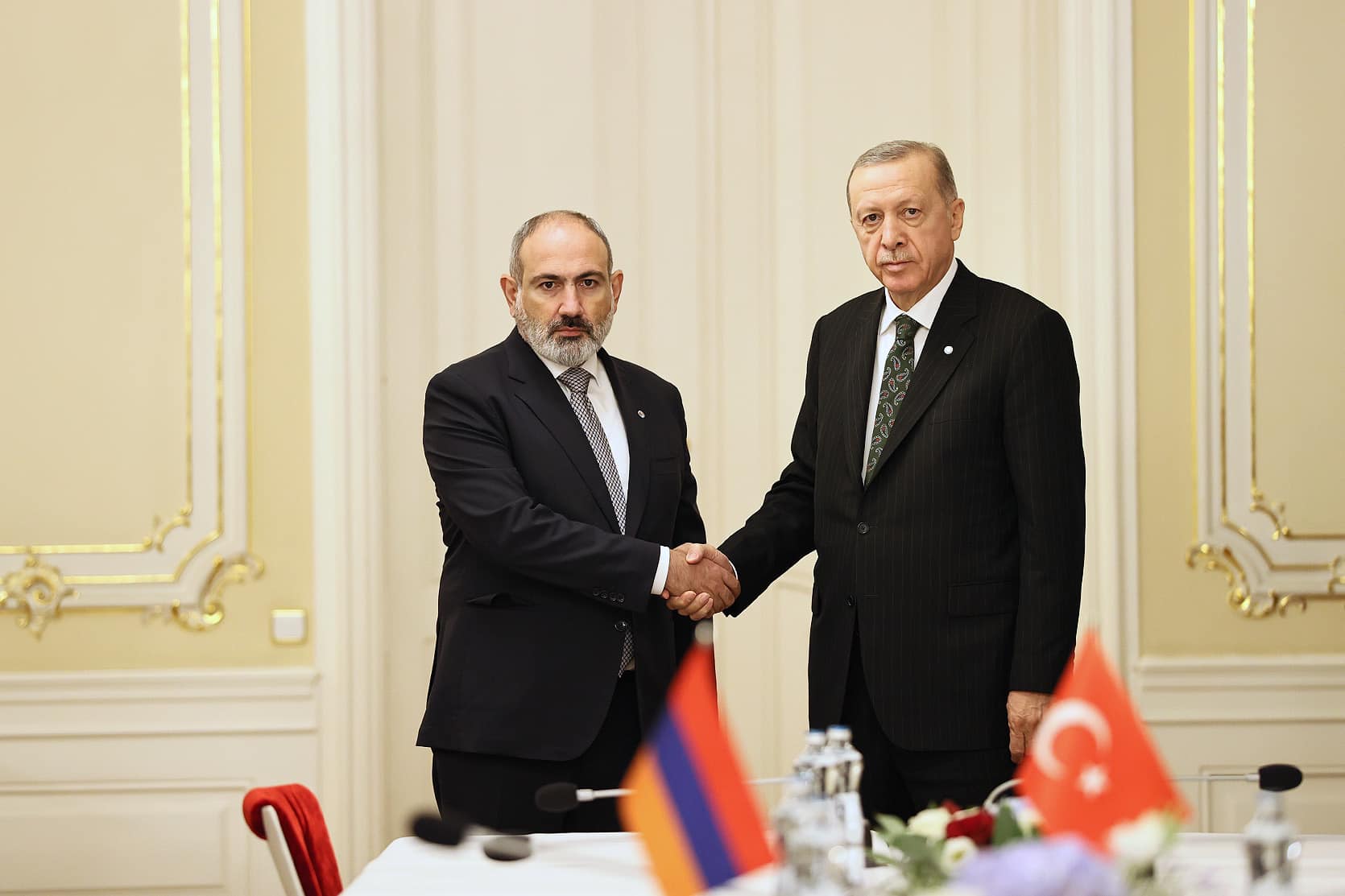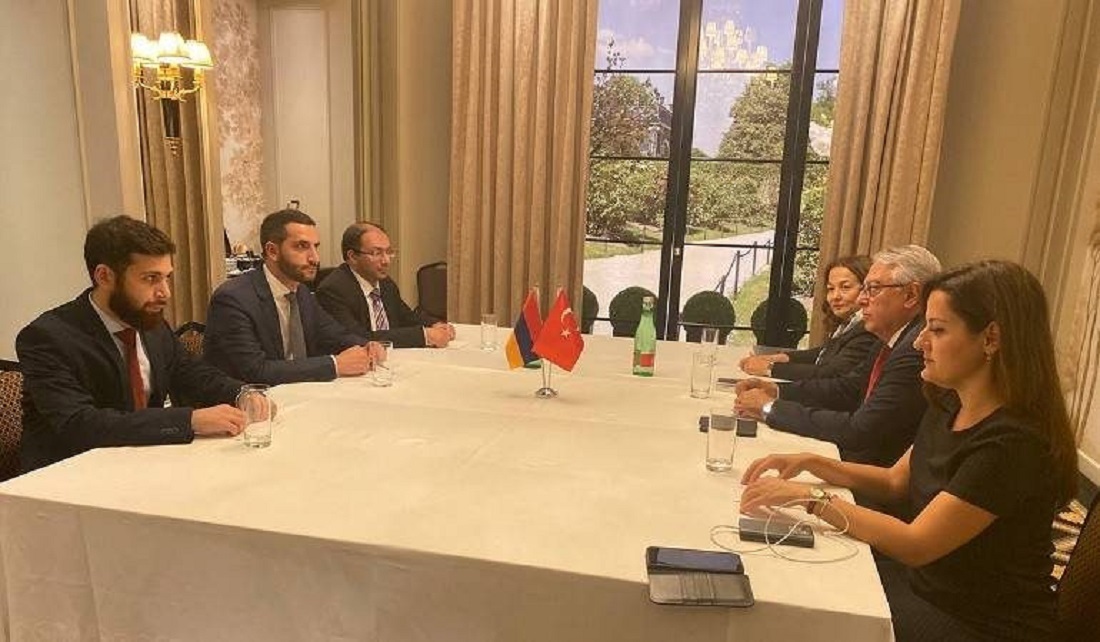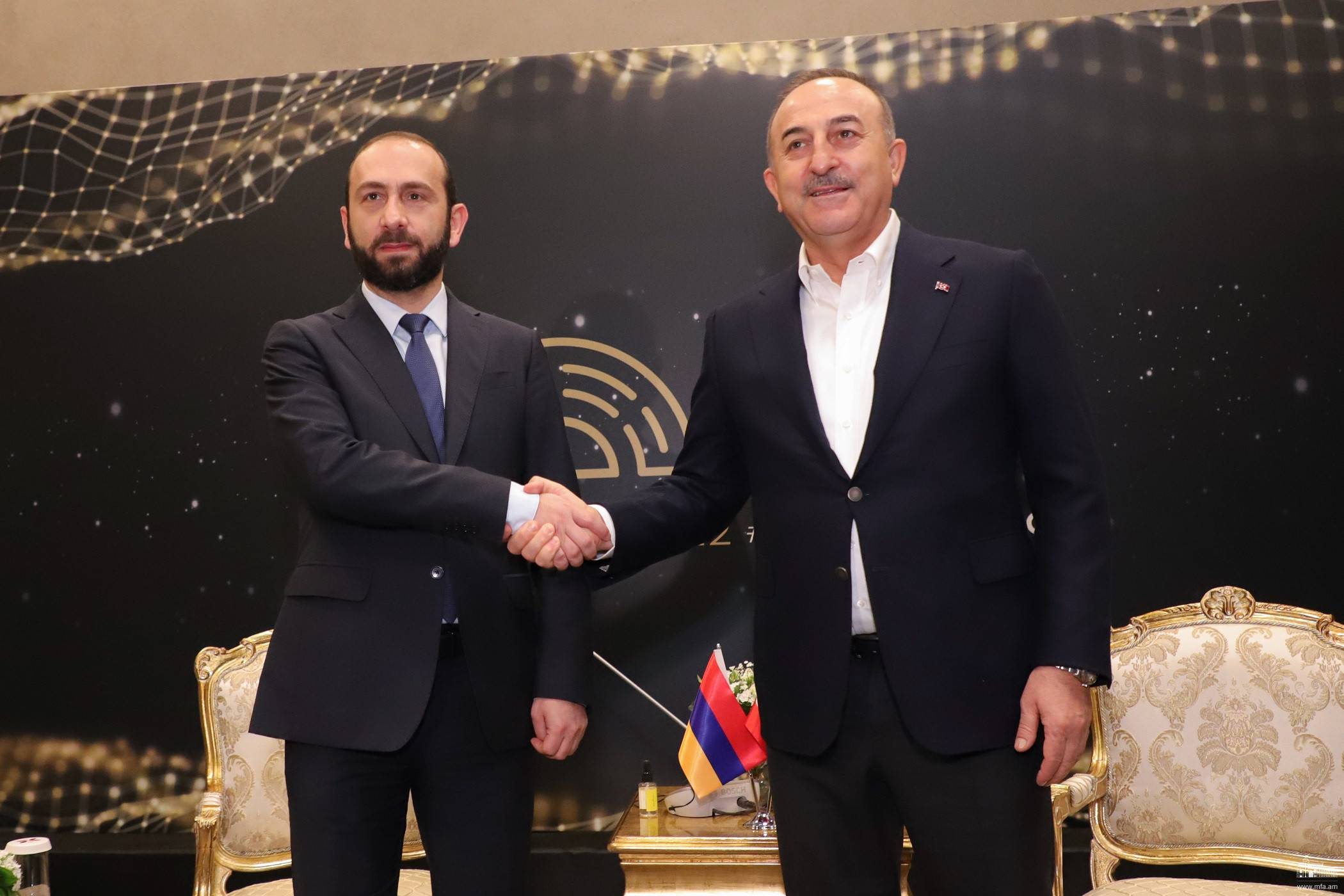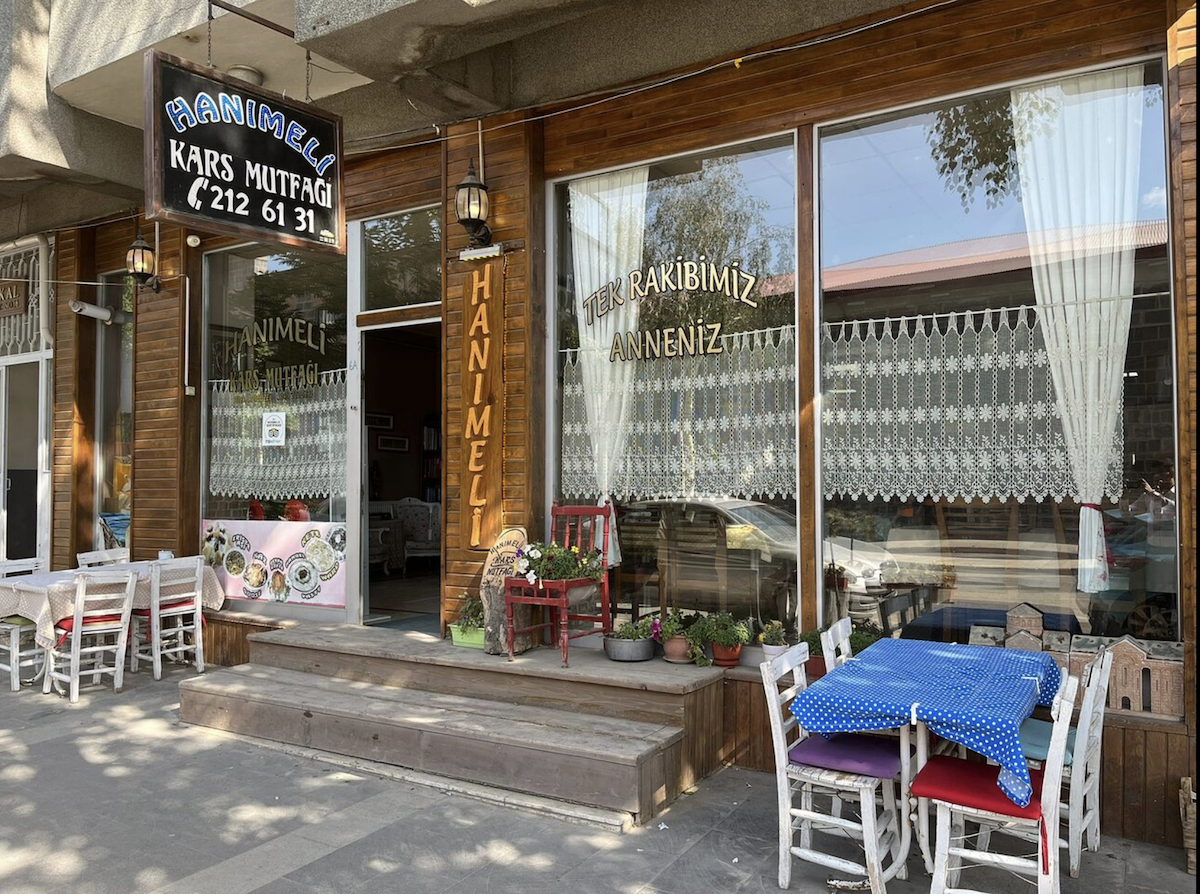Armenia commemorates victims of genocide in Ottoman Turkey during negotiations with Ankara
Prospects for normalizing relations with Turkey
Armenia is observing the 108th anniversary of the Armenian Genocide in Ottoman Turkey, with April 24 the Day of Remembrance for the Victims, while for the second year the process of normalizing relations with Ankara has been going on. Yerevan announces that it is ready to establish good-neighborly relations, expects effective negotiations without preconditions, and an early opening of borders. Over the past year, four meetings of the special representatives of Armenia and Turkey have taken place, but there has been no progress yet, and borders remain closed.
Armenian Prime Minister Nikol Pashinyan stated that the main obstacle to establishing relations between Armenia and Turkey is the position of Baku. Turkish officials actually confirm this, emphasizing that every step towards normalizing relations with Armenia is coordinated with Azerbaijan.
Armenian experts, however, believe that after the devastating earthquake in Turkey, which led to greater dependence on the West, adjustments are being made to Ankara’s position. The situation, in their opinion, to some extent reduced the ambitions of Turkish President Erdogan. Given the geopolitical changes in the world and the region, some analysts tend to think that normalization of Armenian-Turkish relations is becoming more realistic.
- Armenia: how genocide went from taboo to national rallying point
- Yerevan revokes Armenian-Turkish Protocols, border to remain sealed
- US President Biden uses word ‘genocide’ while talking about killings of Armenians in Ottoman Turkey
- Yerevan-Istanbul: “Transport and economic ties are being established”
-
Reference: everything about the relations between Armenia and Turkey
In 1991, after the collapse of the USSR, Turkey de facto recognized Armenia, but still refuses to establish diplomatic relations. Since 1993, Turkey has unilaterally closed its air and land borders with Armenia. Through the efforts of the world community, the air border was opened in 1995, the land border is still closed.
An attempt at normalization after the Karabakh war
Talks about the normalization of Armenian-Turkish relations intensified after the 2020 war. In December 2021, Yerevan and Ankara announced their readiness to take steps to resolve them. Countries have appointed special representatives for this process. They met four times, and there has been no significant progress on the results of the talks yet.
In July last year, the special representatives for the normalization of relations between Armenia and Turkey reached agreements:
“to ensure the possibility of crossing the Armenian-Turkish land border for citizens of third countries,
start direct air transportation of goods between Armenia and Turkey”.
On January 6, 2023, Turkey informed Armenia about the lifting of the ban on direct air transportation of goods. The first point is still not implemented.
Meetings, negotiations of leaders of countries and foreign ministers
On March 10-12, 2022, the Armenian Foreign Minister, at the invitation of Turkey, took part in the Antalya Diplomatic Forum.
On October 6, 2022, within the framework of the European Political Community summit, Armenian Prime Minister Nikol Pashinyan met with Turkish President Recep Tayyip Erdogan.
In February 2023, after the devastating earthquake in Turkey, the Armenian government sent a search and rescue team of 27 people to the city of Adiyaman in Turkey.
In addition, humanitarian aid was sent to Turkey. On February 11, for the first time since 1993, five Armenian trucks crossed the Armenian-Turkish land border of Margara-Alidzhan (Igdir) and headed for Turkey. On February 15, the border reopened for a second batch of humanitarian aid.
On February 15, a meeting of the Foreign Ministers of Armenia and Turkey took place in Ankara.
Previous failed normalization attempt
The previous attempt to normalize relations was called “football diplomacy”. It started on September 6, 2008. Then Turkish President Abdullah Gul arrived in Armenia. Together with Armenian President Serzh Sargsyan, they watched a football match between the national teams of the two countries. Then negotiations began, as a result of which, in 2009, in Zurich, the foreign ministers of the two states signed protocols on the establishment of diplomatic relations and on the principles of mutual relations. However, these documents have not been ratified by the parties.
In December 2009, Turkish Prime Minister Recep Tayyip Erdogan stated that Ankara would not ratify the protocols until the Karabakh conflict was resolved. In the Turkish parliament, the process of ratifying the document was frozen. In response, the Armenian side stated that the protocols should have been signed without preconditions, and on April 22, 2010, it was decided to suspend the process of ratifying the protocols. Five years later, the President of Armenia withdrew the Armenian-Turkish protocols from the National Assembly. And on March 1, 2018, Armenia announced their annulment.
Gurgen Simonyan, political scientist
Avoid historical questions
“The process of normalization will be long. And the parties will have to mutually receive answers to a number of questions relating to historical problems. Without sincere answers to them, normal coexistence in the region cannot be expected.
I think if Turkey is aiming for a prosperous democratic future, sooner or later it will have to accept the historical facts and normalize relations with Armenia. I don’t see an alternative to this.
It cannot be called a precondition. This is an existential socio-humanitarian and psychological need. Without preconditions, state relations can be established, diplomatic missions can be opened, economic ties can be established. But humanitarian issues, which are painfully perceived by the societies of both countries, sooner or later must be touched upon in the process of establishing relations.”
Pressure on Turkey
“Turkey’s caution is due to the geopolitical situation and pressure on it from Russia and Azerbaijan.
The Russian Federation is not interested in resolving Armenian-Turkish relations, while Azerbaijan is promoting its own political goals and interests, which makes Turkey refrain from taking decisive steps to improve relations.
The situation may change after clarification in the Russian-Ukrainian conflict, when the alignment of forces is clearly defined and Azerbaijan will not be able to strongly influence Turkish policy, linking Armenian-Turkish relations with the settlement of its own relations with Armenia.”
Armenian-Turkish past
“Humanitarian cooperation between the Armenian and Turkish peoples is centuries behind. A multi-vector policy and multi-level diplomacy can pave the way for the normalization of Armenia’s relations with Turkey, and separate this process from relations with Azerbaijan.
It is impossible to mix these two vectors, as there is no hope for success in the resolution of Armenian-Azerbaijani relations. The fact is that Azerbaijan, proceeding from its own “grand strategy”, is aimed at the destruction of the Armenian state.
But Turkey, based on the new realities I believe, will cooperate with Armenia. After the Battle of Sardarapat, Türkiye recognized the first Republic of Armenia as an independent state. There are historical facts that will force Turkey to accept the reality.
The Battle of Sardarapat (May 21-28, 1918) was a battle near the railway station Sardarapat of the Armenian army with the Ottoman troops invading Eastern Armenia. It is believed that this battle not only stopped the offensive against Armenia, but also prevented the destruction of the Armenian people, marked the restoration of Armenian statehood. The British historian Christopher Walker wrote: “If the Armenians had lost the battle, then, quite possibly, the word ‘Armenia’ would have been preserved only as a term of historical geography.”
In dealing with the Turks for many years there were not only negative moments, but also positive. We should not forget that in the Ottoman Empire the Armenians were involved in the industrial and military spheres, science, culture, architecture, and actively participated in the life of the entire state.
Opening borders, creating opportunities for communication can create conditions for real normalization. This is a step by step policy. First, they will open the border for citizens of third countries, then for bilateral visits then they will open diplomatic missions.”
Genocide and Erdogan’s policy
“In any case, Armenians should not forget the past. Armenia must demand recognition of the genocide a priori, because it is a cultural and historical fact.
In Turkey, recognition may come after the change of the leader of the state, if a more democratic politician comes to power. Much depends on the head of state, who builds the country’s policy.
Erdogan promotes a policy of pan-Turkism. But before him, Abdullah Gul, an adherent of the republican ideology, pursued a different policy. Gul did not recognize the Armenian genocide, but flew to Yerevan for the national team match, took certain steps within the framework of “football diplomacy,” as that attempt at normalization is called.”
Elections and disaster adjustments
“On March 14, presidential and parliamentary elections are scheduled in Turkey. Erdogan, who has been president for nine years and led the government for eleven years before that, is trying to stay in power.
Unfortunately, among his competitors I do not see a leader who, having come to power, can put the country on a democratic path of development. If Erdogan is somehow re-elected, I do not think that he will continue to pursue the same policy. Turkey has big losses – financial, humanitarian, economic and geopolitical.
After the earthquake, more than 25 million people are below the poverty line, more than 700,000 buildings were destroyed. This disaster is comparable to the explosions of fifty atomic bombs.
Türkiye is now heavily dependent on Western capital. According to various estimates, the damage from the earthquake in Turkey is estimated at 100 to 200 billion dollars. And this money is in the West.
Therefore Erdogan’s policy before the earthquake, when he tried to become a geopolitical leader, is no longer possible to implement. I think the natural disaster moderated geopolitical ambitions, pushed Turkey towards a more pro-Western policy. And this will also lead to Ankara’s more realistic approach to the issue of regulating relations with Armenia.”
Toponyms and terminology used in the publications, and views, opinions and strategies they contain do not necessarily reflect the views and opinions of JAMnews or any employees thereof. JAMnews reserves the right to delete comments it considers to be offensive, or otherwise unacceptable.
Follow us – Twitter | Facebook | Instagram
Prospects for normalizing relations with Turkey























